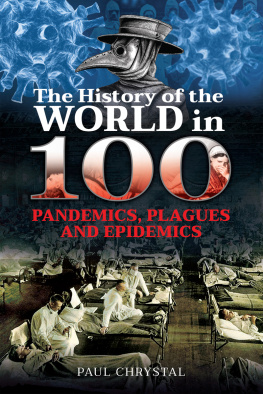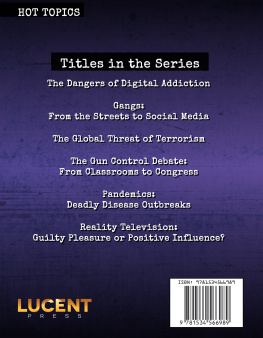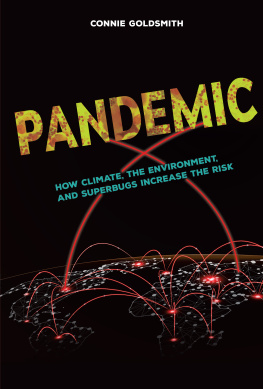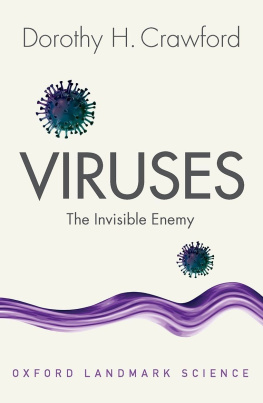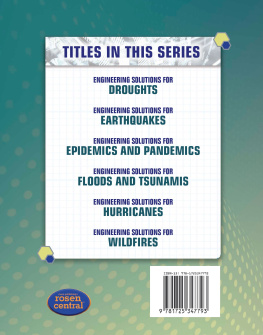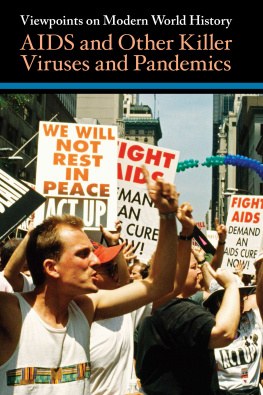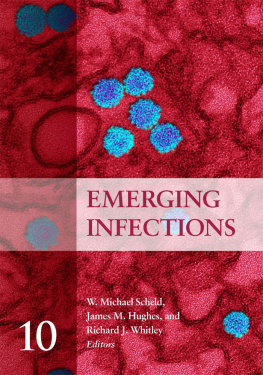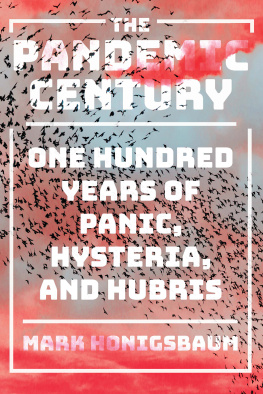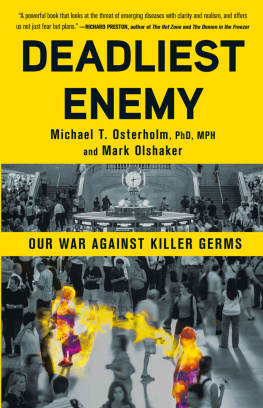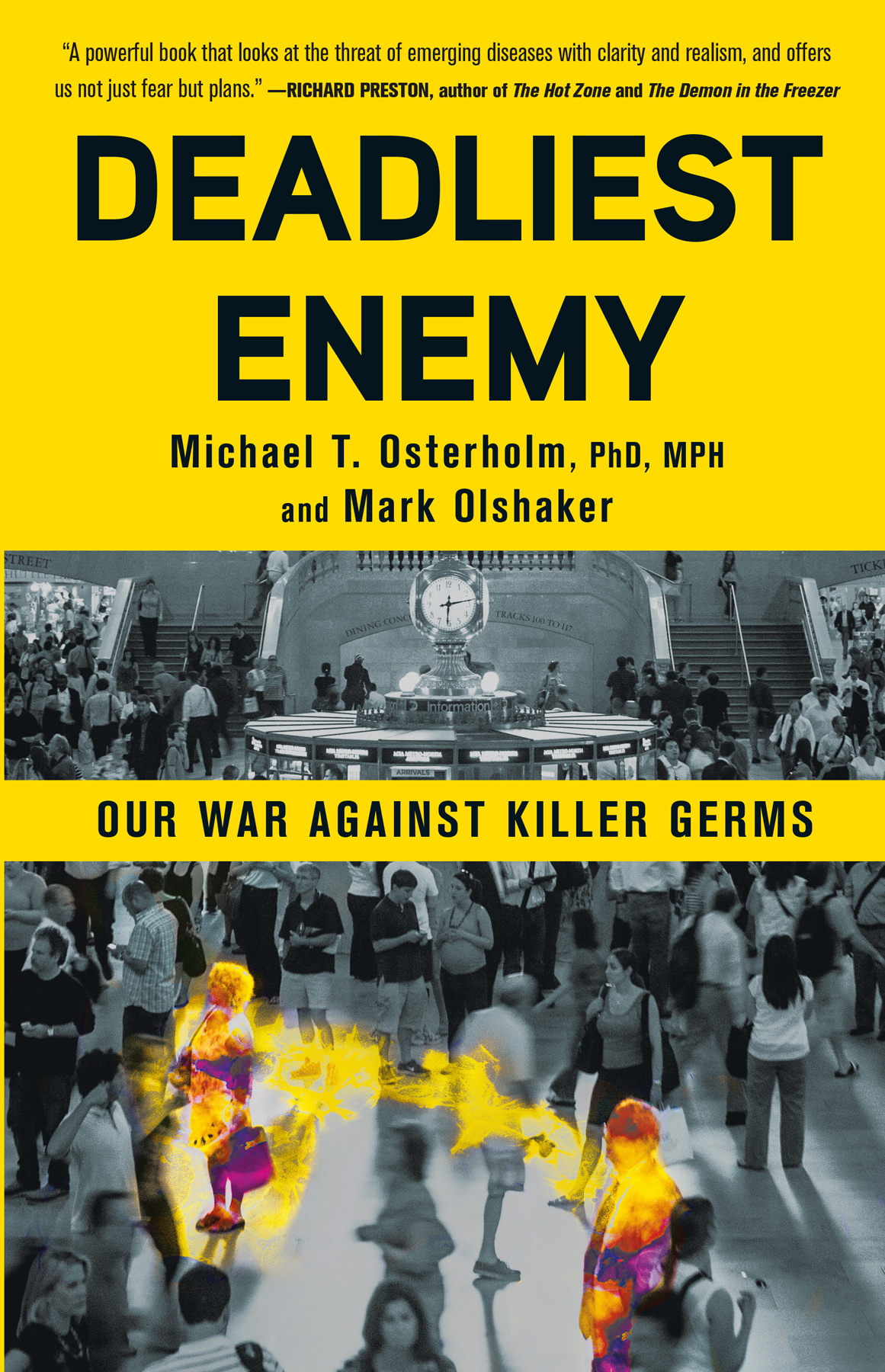With C. J. Peters, MD:
When I was the state epidemiologist of Minnesota, a few people in the media started calling me Bad News Mike because often when public officials or corporate leaders got a call from me, I was unlikely to tell them anything they wanted to hear. In a story with that title by Kermit Pattison in Mpls St Paul magazine, the subhead read: Headstrong and outspoken, the states epidemiologist insists hes only a messenger from the germ front. Whatever he is, the message isnt good.
Well, I dont know about the headstrong charge, but I certainly have to plead guilty to being outspoken. Thats because I believe in what I call consequential epidemiology. That is, by attempting to change what could happen if we dont act, we can positively alter the course of history, rather than merely record and explain it retrospectively. Because of the accomplishments in the 1960s and 1970s of two of the giants of public health, Drs. Bill Foege and the late D. A. Henderson, aided by literally thousands of others, countless millions yet unborn will be spared the devastation of smallpox. Opportunities for such life-altering good are still out there, if we only recognize them and have the collective will to act.
This book results from my participation, observations, concerns, outbreak investigations, studies, programs, and policy development on the front lines of the major public health issues of our time. They involve toxic shock syndrome, AIDS, SARS, antibiotic resistance, foodborne diseases, vaccine-preventable diseases, bioterrorism, zoonotic diseases (those transmitted from or to animals and humans) including Ebola, and vector-borne diseases (those transmitted by mosquitoes, ticks, and flies, such as dengue and Zika viruses). Each experience or encounterlocal, regional, national, or internationalhas informed and shaped my thinking, each has taught me a critical lesson about how we deal with our deadliest enemy, and each has focused the lens through which I approach public health.
Because, in fact, infectious disease is the deadliest enemy faced by all of humankind. True, infection is far from the only type of illness that affects each of us, but it is the only type that affects us collectively, and sometimes on a mass scale. Heart disease, cancer, even Alzheimers, can have devastating individual effects, and research leading to cures is laudable. But these diseases dont really have the potential to alter the day-to-day functioning of society, halt travel, trade, and industry, or foster political instability.
If there is any particular theme to my career, it has been connecting disparate dots of information and making them into a coherent line to the future. For example, I both wrote and lectured as early as 2014 that the appearance of the Zika virus in the Americas was just a matter of time. Before a doubting professional audience at the National Academy of Medicine in 2015, I predicted that MERS would soon appear in a major city outside the Middle East. (It did, in Seoul, South Korea, just months later.)
I dont claim any unique skills. Foreseeing issues and potential threats should be a matter of standard practice in public health.
When I established CIDRAP, the Center for Infectious Disease Research and Policy that I now head at the University of Minnesota, I was mindful of the fact that without policy, research has nowhere to go. Another way of saying this is that we tend to go from crisis to crisis without ever anticipating them or finishing the job in the end.
Science and policy must intersect to be effective. Therefore, throughout this book, we will seldom talk about realized or needed advances in the science of disease prevention without always giving equal consideration to what to do with those advances.
What we aim to give you here is a new paradigm for considering the threats posed by infectious disease outbreaks in the twenty-first century. While we will deal with the broad range of communicable illness, we will concentrate on identifying and exploring those maladies with the potential to disrupt the social, political, economic, emotional, or existential well-being of large regions, or even the entire planet. And while morbidity and mortality are certainly prime considerations, they are not the only ones. The current reality is that a few confirmed cases of smallpox anywhere in the world would create more sheer panic than do many thousands of malaria deaths in Africa alone.


